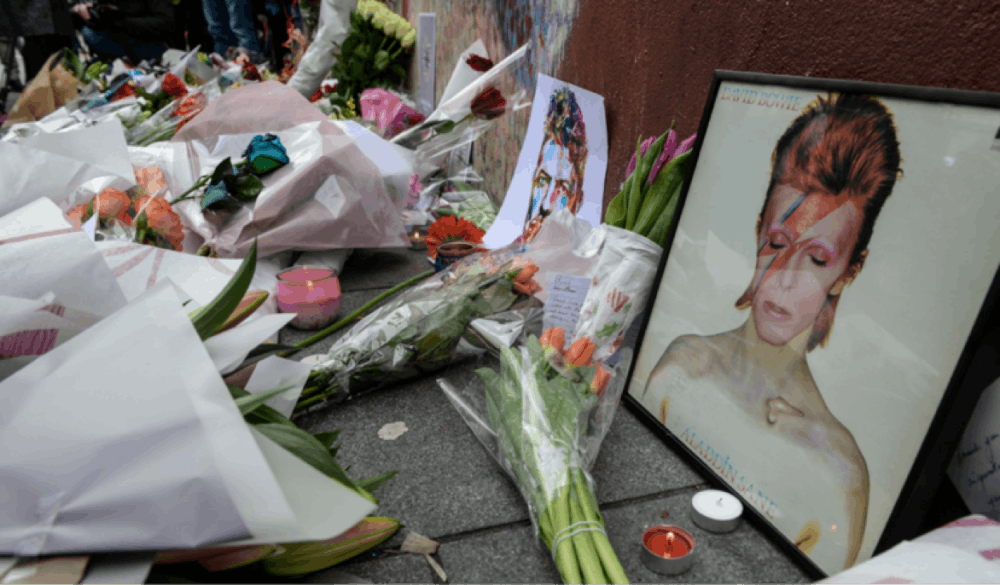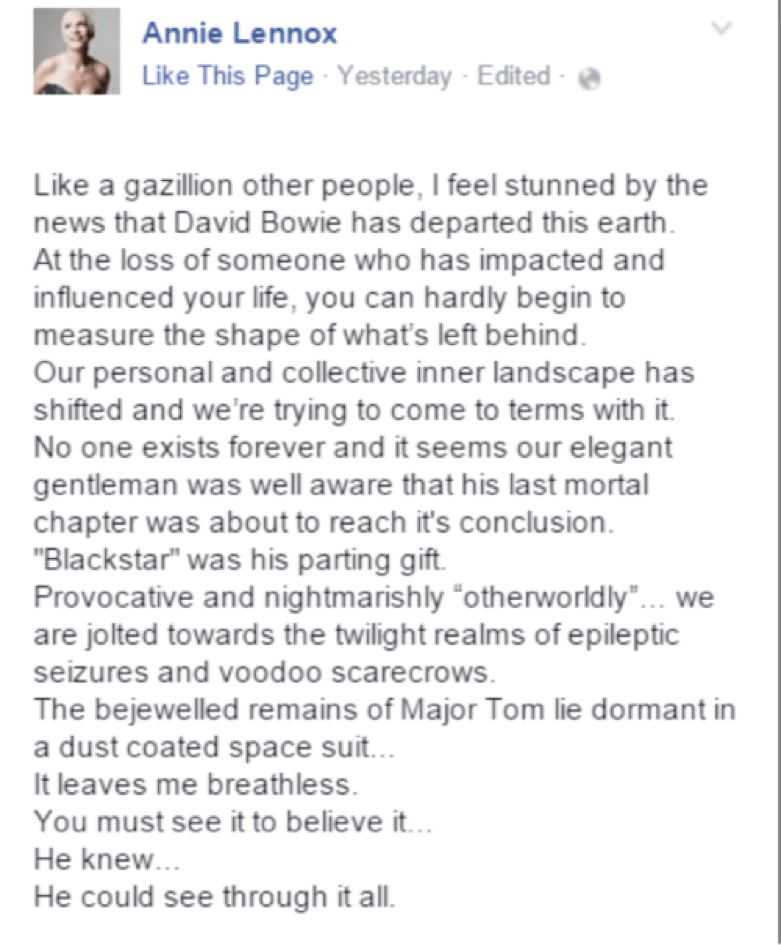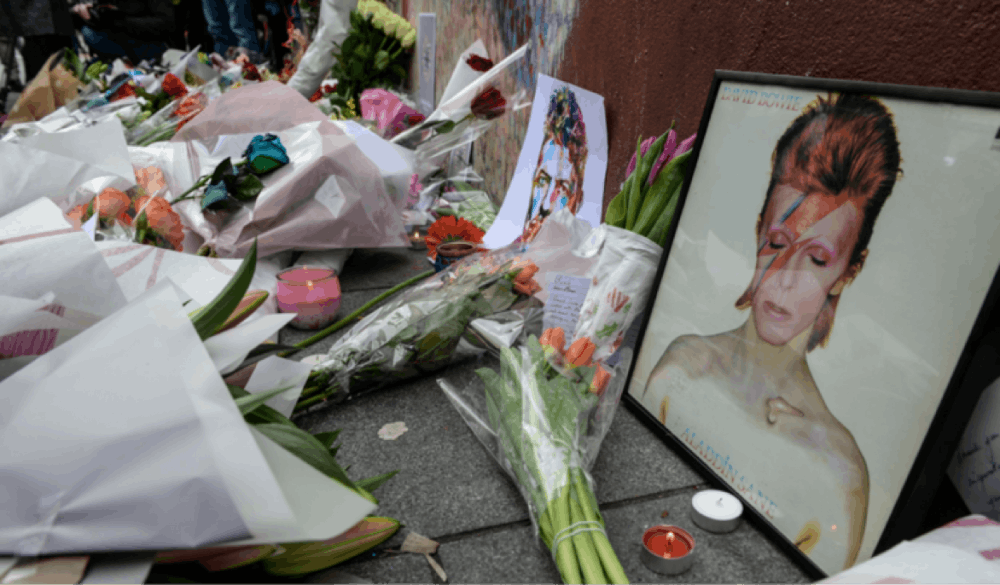Remembering the life and legacy of rock pioneer David Bowie.
By Breanna Cooper
On Jan. 8, I intended to review David Bowie’s new album Blackstar. As I listened, I noted the instrumentation in “I Can’t Give Everything Away,” the bizarre introduction to “Girls Love Me,” and kept in mind the eerie music video that accompanied “Lazarus.” On Jan. 10, I discovered that a review would be redundant. Blackstar, Bowie’s 28th studio album would be the last for the rock legend.

David Bowie’s passing was not only heartbreaking but also shocking. The private rock star kept his 18-month battle with cancer relatively secret, with only family and close friends knowing his diagnosis. Despite his illness, Bowie released two music videos for his latest album Blackstar, one for the title song and the other for “Lazarus.” Perhaps it was the anticipation for new material that made fans overlook the singer’s gaunt figure and the dark lyrics in the new tracks. In hindsight, the entire album now seems to be a haunting farewell. While it has been reported that Bowie made plans for future work, it is obvious throughout the album that Bowie knew he would not see these works released. The death of Major Tom could have been a parallel to the fate that Bowie knew was his. As Bowie said in “Blackstar”“something happened on the day he died.”
Upon hearing the news, social media was filled with an overwhelming outpour of emotions from fans from all demographics. Many artists shared their stories of the Thin White Duke.

Shaun Cassidy took to the internet to share the story of meeting Bowie when Cassidy was just fifteen years old. Bowie told the budding popstar to “trust what makes you different,” a piece of advice that Cassidy has carried with him all these years.
Along with his musical genius, Bowie will certainly be remembered for his knack for being different. Throughout his four decade career, Bowie introduced the world to alter egos Ziggy Stardust, a bisexual alien from Mars, and Aladdin Sane, who served to demonstrate the thin line between sanity and insanity, hence “A Lad Insane”. Bowie’s ability to completely rebuild himself is likely the reason that so many people can identify with his music. All of us have felt out of place at times. Bowie’s music, as well as his entire persona, helped spread the idea that everyone is just a little bit crazy and maybe we should just embrace that.
Bowie was not only an important figure in the world of music and film but also a prominent supporter of those who are often ostracized by society, including the LGBT community, and indigenous groups, and used music to express the struggles that come with mental illness.

Bowie’s death not only signals the end of an era, but it also serves as a lesson about the power of art. Whether you know him from his role as Jareth the Goblin King or from his role as a pioneer of glam rock, people from all walks of life felt the loss of such an important icon. After a quiet battle with cancer, Bowie said goodbye to the world the best way he knew how: through music.
He told listeners in “Lazarus”, “Just like that bluebird/ Oh I’ll be free/ Ain’t that just like me.”
Bowie could have easily announced his terminal diagnosis. Instead, he released teasers for music videos. In his last days, he saw anticipation and celebration for his newest album. Bowie’s legacy could have been overshadowed by a lengthy battle with cancer. Instead, the final part of his legacy will be releasing a beautiful, best-selling album despite fighting a terminal illness.
Ain’t that just like him?
Remembering an Icon: David Bowie

Heads up! This article was imported from a previous version of The Campus Citizen. If you notice any issues, please let us know.




